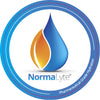5 Tips for the Newly Diagnosed POTS Person


It seems like there is an influx of people who are newly becoming diagnosed with POTS (postural orthostatic tachycardia syndrome). It may not be a coincidence either. In our post COVID world, we are just now beginning to understand how it has affected our population. According to this study, up to 40% of people who had long covid may have triggered an autonomic dysfunction (also known as dysautonomia).
Do you suspect that your POTS, a form of dysautonomia, was triggered by a covid infection? It’s possible! Read more about that here.
Newly Diagnosed with POTS
Regardless of the cause of your POTS, you’ve been newly diagnosed. Receiving a diagnosis of POTS can have a couple different effects; relief as you were finally diagnosed and fear of what that looks like for your future.
It often takes up to six years or more to get a diagnosis of POTS. Which means you’ve likely been experiencing the symptoms for many many years without a lot of knowledge of how to manage them.
Symptoms of POTS
- Brain fog
- Rapid heart rate
- Shortness of breath
- Dizziness
- Fainting or feeling like you’ll faint
- Exhaustion/Fatigue
- Headaches
- Insomnia
- Temperature deregulation
- Excessive or lack of sweating
- Chest pain
- Low blood pressure/high blood pressure
- Blurred vision
This is just the tip of the iceberg when it comes to symptoms of POTS. There are more, but these symptoms tend to be the most common amongst people with POTS. If you’ve been newly diagnosed with POTS you may be wondering how you can manage these symptoms. We have tips!
5 Tips For Managing Symptoms of POTS For the Newly Diagnosed
- Salt. ALL THE SALT. It’s likely your doctor after your diagnosis said to you, “Take {x amount} of sodium a day.” Which can be so very confusing because salt and sodium is not easy to convert (luckily we have a sodium/salt calculator). The amount of salt you need can seem astronomical; the Cleveland Clinic recommends 3,000mg - 10,000mg of sodium daily. How do you get that much sodium in a day?! We recommend drinking NormaLyte. Our PURE was made for people with POTS and has been clinically proven to manage symptoms.
- Exercise. We know. It seems like the solution all doctors give for any and all ailments. It can be frustrating especially when you have POTS because it can seem almost impossible to exercise when you’re struggling with debilitating fatigue. We talk about some different exercises that can be easier on the person with dysautonomia here. They are easy to manage while seated or laying down which can make a big difference when you’re not entirely sure you can manage standing for long periods of time. Yoga is also great for POTS!
- Compression garments. These are not cute. In fact, even the cute ones are not that cute. They will make a world of difference, though. By compressing and controlling so that you are not experiencing blood pooling in your legs.
- Monitor your symptoms. Keep a little notebook and document your day. This may help you make a connection between what you’re doing through the day and how you’re feeling overall. Keep a log of the amount of sodium you’ve consumed because that will also tell you what the correlation is in how you feel.
- Find a support team. Maybe it’s a parent, a sibling, or a friend. Maybe it’s the strangers in the facebook group you found. Whoever it may be, ensure you’ve got a support system of people surrounding you. Find someone empathetic, not sympathetic, who can offer a listening ear.
What are some tips that you wish someone had given after you were newly diagnosed with POTS? Drop it in the comments below.







Nikki – Thank you for sharing your daughter’s experience—it’s heartbreaking to see a loved one struggle, but she’s lucky to have your support and advocacy. Many in the POTS community can relate to feeling dismissed, so it’s encouraging to hear she has a specialist who takes her symptoms seriously.
Her doctor’s recommendations align with what many POTS patients find helpful, especially increasing salt and fluids. Using a medical-grade electrolyte powder for POTS patients, like NormaLyte, can be a great way to meet those high sodium needs without having to measure out salt manually. Proper rehydration for POTS can make a huge difference in managing symptoms like fatigue, dizziness, and heart rate fluctuations.
It’s also important to recognize how physically and emotionally exhausting POTS management can be. Thank you for reminding others to be patient and kind—it truly is a journey. Wishing your daughter the best as she continues her treatment!
My daughter was diagnosed last January. (Confirmed diagnosis from a tilt table test) We were finally able to get her in with a neurologist who specializes in autonaumic dysfunction. He ordered a ton of tests, mostly lab work. She feels miserable most of the time & has been unable to work. She also feels a lack of empathy & that she isn’t taken seriously which breaks my heart. Symptoms include: nausea, fatigue, severe sweating, fluctuation in heart rate, blurred vision and difficulty seeing at night, cold extremities, passing out, difficulty walking for long periods of time, headaches, and just a general feeling of not feeling well. If she does something that she’s looking forward to, like a concert, it can take days if not a week for her to recovery. I am trying be optimistic about her future. I am looking forward to the follow up with the Dr even though it won’t be for several months. He reassured her she may see abnormal results in her chart before we hear from him and not to panic. In the meantime he wants her to: drink a gallon of water per day, have 3 teaspoons of salt, wear waist high compression stockings 40-50 mmhg, put head of bed on 6 inch risers, do POTS specific water physical therapy, and wear an abdominal binder. I hope this information helps someone else! Please don’t give up advocating for yourself and please be patient and understanding to a loved one who may be experiencing this. It can be a very lonely process. Depression and anxiety seem to also have a correlation so be kind to yourself! & seek help!
Hi I Have Recently Noticed That I Have All The Symptoms And Am Trying To Gey Diagonesed Any Tips? Also Am I Does Anyon Have A Service Dog For POTS?
I have pots, and am experiencing horrible symptoms. I am taking sodium,and drinking a lot of water a day. What can I do to make myself feel better. Right now I am only resting, and not able to do most activitys.
I have pots, and am experiencing horrible symptoms. I am taking sodium,and drinking a lot of water a day. What can I do to make myself feel better. Right now I am only resting, and not able to do most activitys.
Leave a comment